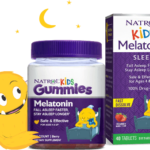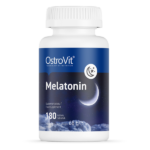Melatonin Gummies: Uses, Dosage, Side Effects, Warning

What are melatonin gummies?
Melatonin gummies are sweet, chewy candies infused with melatonin. They are usually chewable and taste good and because they are easy to swallow, children love them. Melatonin is a natural hormone that helps regulate the daily cycle of sleep and wakefulness, with melatonin production increasing at night and decreasing in the morning. Data from the National Center for Health Statistics of the National Institutes of Health show that the use of melatonin supplements by adults in the U.S. more than doubled from 0.6 percent in 2007 to 1.3 percent in 2012, with an estimated 3.065 million adults reporting that they had taken melatonin during the past 30 days.
Melatonin Gummies come in different shapes and sizes, some are non-GMO and vegetarian which makes them free of artificial flavors, sweeteners, colors and preservatives. Most are pectin-based, so they are less likely to stick to your teeth and to the bottle than standard gelatin gummies.
Melatonin essentially regulates your sleep cycle. For the most part, many people produce enough melatonin to sleep well at night. For those who don’t, a melatonin supplement might be the answer. There aren’t any hard or fast rules with regard to how much melatonin to take, but typically, an adult only need about 0.5 (milligrams) mg to 3 mg per night.
Melatonin is popular because it’s non-habit-forming and there’s a low risk of sleep inertia (waking up feeling groggy or hungover). That’s not to say that melatonin doesn’t have its faults.
In America, 70% of adults report that they obtain insufficient sleep at least one night a month, and 11% report insufficient sleep every night. It is estimated that sleep-related problems affect 50 to 70 million Americans of all ages and socioeconomic classes.
How should I take melatonin gummies?
There is no official recommended melatonin gummies dosage for adults, but a range of 0.5 milligram to 5 milligrams appears to be safe and effective. Adults can take melatonin about one hour before bed.
Pregnant and breastfeeding women should avoid using melatonin gummies without first consulting their doctor. There has not been sufficient research into the safety of melatonin among this population.
Short-term use of melatonin gummies in small doses appears to be safe and well-tolerated by most children. The effective dosage for children ranges from 0.05 milligrams per kilogram to 5 milligrams of melatonin. When children experience side effects from taking melatonin, they’re typically mild and may include:
- Bedwetting (more than usual)
- Dizziness
- Drowsiness
- Headaches
- Agitation
Medical professionals may recommend melatonin gummies for children with conditions that affect their sleep, such as insomnia, autism spectrum disorder, or attention-deficit hyperactivity disorder. Several studies have shown melatonin supplements can significantly improve overall sleep times by 25 minutes to 48 minutes, on average, for children with these conditions.
However, there haven’t been enough studies of melatonin in children for experts to determine an official recommended dosage or any potential long-term safety risks. Since melatonin is a hormone, it’s possible that taking supplemental melatonin could affect other aspects of hormone development in children, but further research is needed.
If your child is having sleep problems, experts recommend consulting your doctor before giving them melatonin. Research indicates that for half of the cases where melatonin was used to treat pediatric insomnia, better sleep habits were just as effective at relieving the child’s sleep problems.
Our melatonin levels naturally decline as we age, disrupting the sleep-wake cycles for many older adults. As a result, older adults may have an increased sensitivity to melatonin gummies. In a meta-analysis of 16 studies, melatonin dosages between 0.1 milligram and 50 milligrams per kilogram were administered to older adults aged 55 to 77 years old. In all of the studies, the melatonin levels remained higher among the older adults when compared to younger adults and stayed higher for a longer period of time — leading to increased daytime drowsiness. The more melatonin the person took, the more pronounced these effects.
As a result, researchers recommend older adults start with the lowest dose of melatonin possible. Lower doses may help older adults sleep better without disrupting their circadian rhythms and causing prolonged drowsiness.
Older adults with dementia should avoid melatonin, according to the American Academy of Sleep Medicine.
How much melatonin gummies should I take?
It’s best to start with the lowest recommended dosage of melatonin for your age. From there, you can gradually increase your dosage until you find a dose that helps you fall asleep without causing any side effects. A safe starting dose for adults is between 0.5 milligram and 5 milligrams of melatonin. Older adults may find lower doses, starting with 0.1 milligram, to be safe and effective. Children should not take melatonin unless recommended by a doctor.
When should I take melatonin gummies?
The best time to take melatonin products like gummies is about one hour before your bedtime. Your brain naturally increases melatonin production about one hour to two hours before you sleep, so taking melatonin at this time may help facilitate the process.
What happens if you take too much melatonin gummies?
There are several things that can happen when you take too much melatonin gummies, a dose that might trigger side effects in one person may have little effect on someone else. Side effects that can occur include
- Headache
- Nausea
- Dizziness, and daytime fatigue.
The American Association of Poison Control Centers reports that calls about melatonin have skyrocketed 114% nationwide since 2012, with 79% of the 24,000 calls in 2016 involving children. Parents often call poison control after their children have taken it unintentionally or taken too much. That can lead to nausea, diarrhea, headaches, changes in mood, lasting sleepiness the next day, and bedwetting, experts say. Experts are also not sure if using melatonin would harm children.
Melatonin Safety Information
While short-term use (a few months or less) of melatonin is thought to be safe in healthy adults, it can boost blood sugar, so it is not recommended for people with diabetes, Goldstein says. Taking too much can also lead to bad dreams and grogginess the next day and it can make many drugs less effective, including high blood pressure medications, seizure medications, and birth control pills.
Because dietary supplements are not regulated as much as prescription drugs, quality can vary wildly from bottle to bottle. One recent study found that 71% of melatonin supplements surveyed did not contain exactly what they said on the label. Some had more than four times as much melatonin as indicated, and 26% contained the powerful neurotransmitter serotonin, a chemical found in many antidepressant medications.





